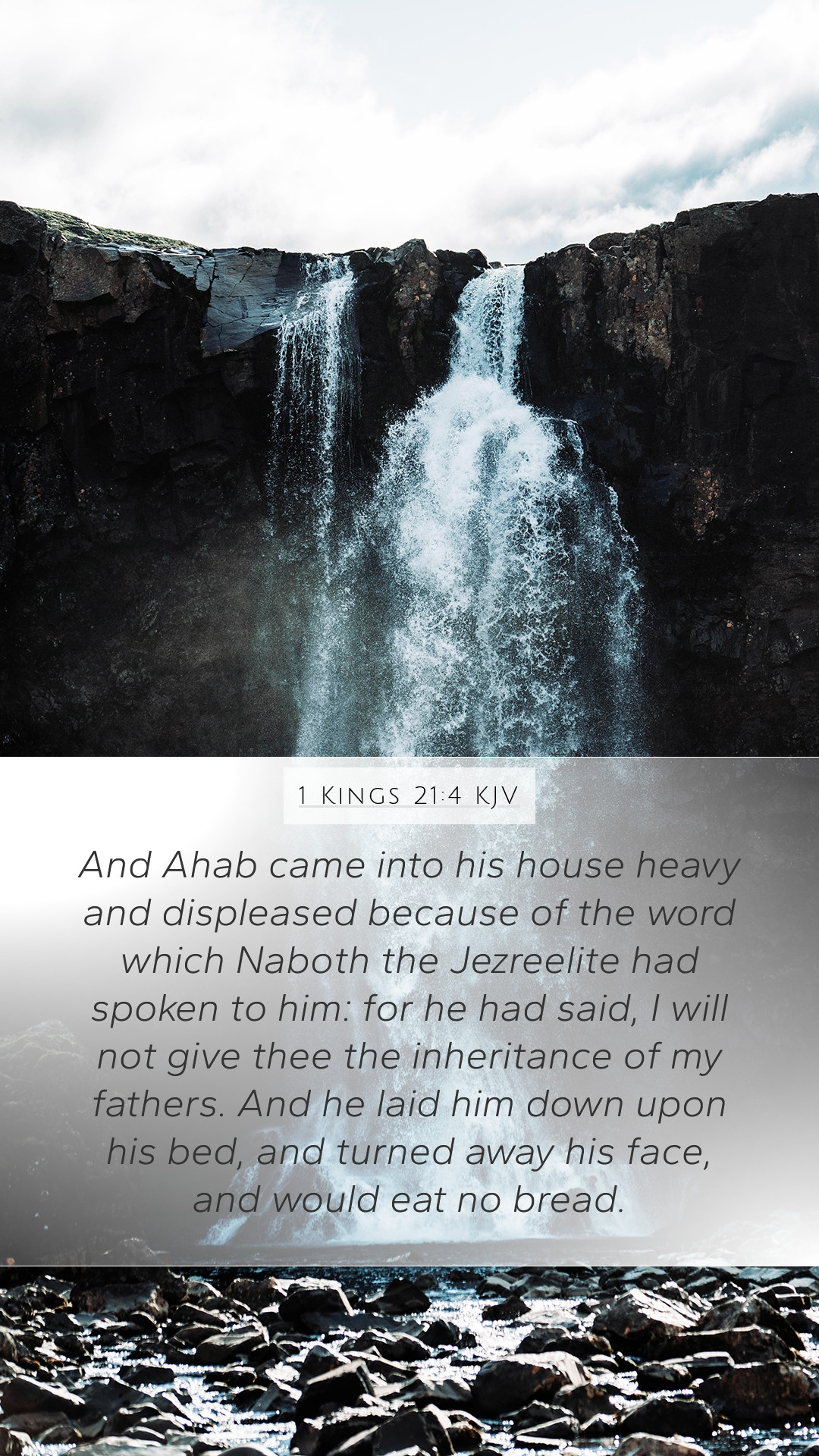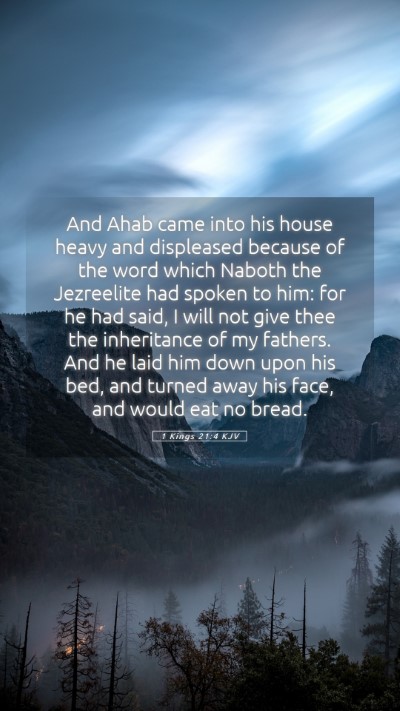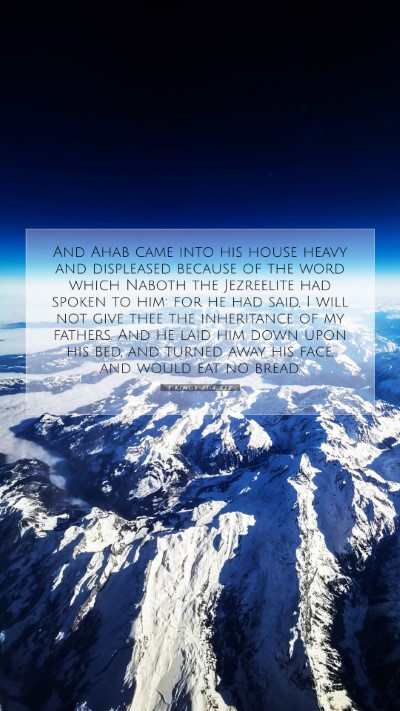Understanding 1 Kings 21:4
Verse: "So Ahab went into his house resentful and sullen because of the word which Naboth the Jezreelite had spoken to him; for he said, 'I will not give you the inheritance of my fathers.' And he lay down on his bed and turned away his face, and would eat no food."
Verse Summary
This verse highlights King Ahab's emotional turmoil after being denied the vineyard he desired. His response reflects a profound sense of entitlement and despair. Ahab's actions invite contemplation on the deeper implications of desire and the consequences of unfulfilled wish.
Commentary Insights
-
Matthew Henry's Commentary:
Matthew Henry emphasizes Ahab's covetousness and self-pity, illustrating how unchecked desires can lead to destructive behaviors. He notes that Ahab's discontent stems from Naboth's refusal, and this reaction reveals the king's inability to accept denied wishes. Ahab represents those who are driven by their desires and become moody when faced with rejection.
-
Albert Barnes' Commentary:
Albert Barnes points out the significance of Ahab’s reaction, categorizing it as a display of weakness and insecurity. Barnes asserts that Ahab’s royal position does not grant him freedom from the pain of disappointment. Instead, his response showcases how power can be trapped in emotional vulnerability.
-
Adam Clarke's Commentary:
Adam Clarke elaborates on Ahab's personality, suggesting that his resentment perched upon a foundation of greed and desperation. Clarke draws attention to the role of Naboth’s land, highlighting the cultural importance of inheritance. Ahab's response reflects a misunderstanding of rightful ownership and the value of familial ties.
Application and Reflection
The emotional state of Ahab serves as a mirror for contemporary readers, encouraging self-reflection on how we respond to denial and loss. This verse invites questions regarding our attachments and the importance we place on material possessions. It calls for a deeper understanding of [covetousness] and the profound implications of unfulfilled desires.
Cross References
- Exodus 20:17 - "You shall not covet your neighbor's house; you shall not covet your neighbor's wife..."
- James 4:2 - "You desire and do not have; so you murder. You covet and cannot obtain; so you fight and quarrel..."
- 1 Kings 21:1-3 - The story of Ahab’s desire for Naboth’s vineyard leads to the subsequent actions taken against Naboth.
Conclusion
1 Kings 21:4 elucidates the complexities of human emotion when faced with rejection. Its insights intersect with the broader themes of Bible verse commentary, Bible verse interpretations, and Scripture analysis. As you explore this verse, consider how contemporary implications relate to personal struggles with desire and the acknowledgment of rightful ownership.


